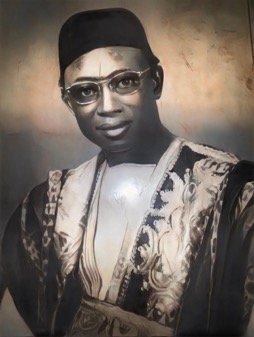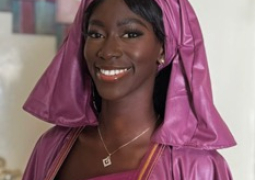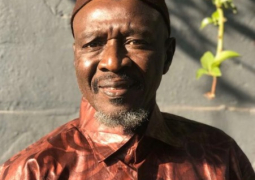
Alhaji Kalilu Singhateh attended Armitage School, Georgetown, and worked at the Audit Department, Bathurst, until 1962 when he contested the Lower Badibu Constituency seat under the Peoples Progressive Party (PPP) ticket. He was among the youthful Mandinka Civil Servants who helped to create the PPP in 1959, and turned it into a national political movement embracing all regions, religions and peoples despite it myopic roots.
In 1962, he won the PPP hustings for Lower Baddibu, and Alhaji Kalilu had a flourishing political career which saw his rise from the PPP Back benches to Parliamentary Secretary, which in Jawara’s days meant a Minister -In-Waiting, to full Cabinet posts, and thence to a fruitful career as an international civil servant at UNESCO.
In his first elections in 1962, he scored 2,857 votes against his opponents UP’s Gabriel Faal and Independent Candidate, Karamo Kinteh. He was an active Backbencher known for his strong stand against apartheid, Ian Smith’s Rhodesia and other minority White rule in Africa. Together with Paul Baldeh, Alhaji Kalilu pressed the newly Independent Government to pay more attention to forging ties with progressive countries like China and USSR and to pay less attention to the former colonial power, the UK. Of course, this fell under Sir Dawda’s deaf ears, so to say, but Alhaji Kalilu won press attention for his seeming progressive stance. His rebellious nature also made Jawara eager to quieten him with Cabinet appointments.
Yet, he was always faithful to Jawara. In 1968, he refused to join the incipient Cabinet revolt by S.S. Sisay and Paul Baldeh. The two left, accompanied by another recently demoted and disgruntled PPP Minister K.C.A. Kah, to form an opposition Peoples Progressive Alliance (PPA), which had but a fleeting existence. Also, in 1975, Alhaji Kalilu refused to join his Baddibu mate, S.M. Dibba, out of the PPP into the NCP. Rumours have it that it was Alhaji Kalilu, who upon hearing from Dibba about his plan to leave PPP and form a new party, quietly informed Sir Dawda of the plot. In the end, only Kebba Bayo, MP for Saloum joined Dibba out of the PPP into the NCP. Perhaps his loyalty to Jawara came out of their long association in the PPP.
Jawara as Prime Minister nominated Alhaji Kalilu among the PPP delegates to the famous The Gambia Constitutional Talks at Marlborough House of July 22, 1964, in London, UK, when the Gambian political class met in London to discuss the way towards Independence. This Conference, and his attendance beside Sir Dawda, S.M. Dibba, S.S. Sisay, P.S. Njie, I.M. Garba Jahumpa and other Gambian independence heroes, shows the strong attachment to Constitutionality by our Founding Fathers, a virtue which we remain attach to as strong today as then.
Alhaji Kalilu was re-elected on the PPP ticket in 1966 and again in 1972. In 1968, he entered Cabinet as Education and Welfare Minister. He occupied this post until 1972, when he was appointed Minister of Health, Labour and Social Welfare. In both portfolio, Alhaji Kalilu exhibited strong leadership qualities, which won him respect among The Gambian Public and his Cabinet peers. As Labour Minister, he, in 1977, won notoriety for banning The Gambia Worker Union (GWU) led by the tireless trade union leader, M.E. Jallow (1928-1987). Some historians like Prof. Arnold Hughes say that he lost his seat in the 1977 elections because of his banning of the GWU as many of the GWU members like dock workers hailed from his Lower Baddibu Constituency, and who crossed the River to vote against him in favour of the young upstart, but highly efficient parliamentary debater, Foday Makalo. Indeed, as sitting Minister, he lost his seat to an opposition candidate and accepted defeat gracefully. In an interview at his Banjul home, he told me that he lost because he was the victim of internal Baddibu schemes orchestrated by members of his own family, and party. He added that as he travelled a lot as Minister, his political enemies had a field day to scheme his downfall.
Alhaji Kalilu left Cabinet and worked for UNESCO where he excelled as Adviser to the late UNESCO Director General, Alhaji Amadou Muctarr Mbow.
In retirement, Alhaji Kalilu continued to be an elder statesman. His insights into recent Gambian political history were always sought for. He was very generous with his time. Latterly, he was eager to pen his memoirs.
In his demise, we have lost one of the last participants in the heydays of Gambian nationalist politics. Ministers of his ilk may not have had the diplomas and degrees, but what they lacked in academic qualification they made up for adequately in wisdom and dedication to duty, which is why they were able to turn around the fortunes of our country from been an improbable nation to a strong, vibrant, sovereign and peaceful country at peace with itself and her neighbours.
To his family, I pay my sincere condolences and pray that his soul rests in perfect peace.
Alhaji Kalilu Singhateh 1934-2025: Pioneer PPP Politician, And Minister, Who Attended the Gambia Independence Conference Talks At Marlborough House.
Read Other Articles In Opinion




